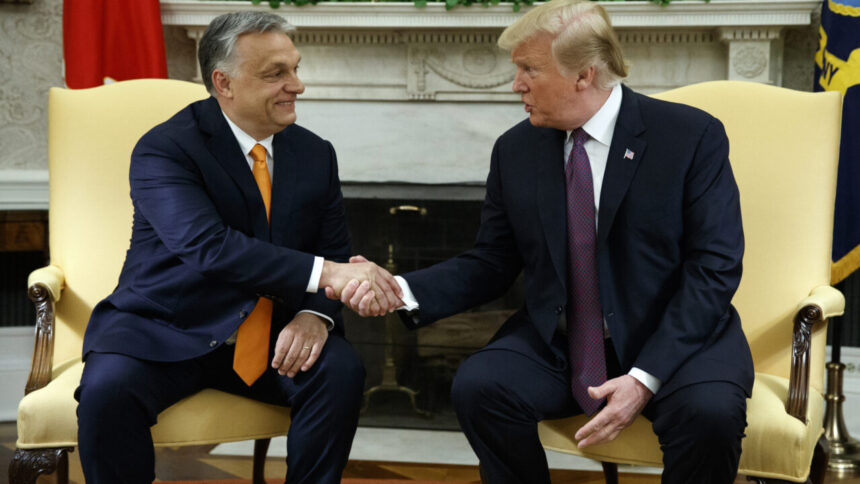Summary by Geopolist | Istanbul Center for Geopolitics:
Orban’s ascent to power commenced when Fidesz, his political party, secured a super-majority in Hungary’s parliament in 2010, enabling him to amend constitutional regulations and centralize authority over the judiciary, civil society, and media. By restructuring institutions to benefit his party, Orban was able to abolish or substantially diminish the conventional checks that limit presidential power. These alterations established a framework wherein Orban’s party may preserve its supremacy with a diminished number of actual votes, so upholding the facade of democracy devoid of meaningful democratic practices. His administration also methodically reconfigured electoral districts, limited opposition parties’ media access, and targeted civil society organizations with legislation designed to mitigate foreign influence and political dissent.
Orban’s administration is characterized by a persistent narrative of crisis, citing dangers from immigration, NGOs, and the European Union to rationalize his authoritarian control. This rhetoric, combined with his administration’s exploitation of state resources, has entrenched his political support and legitimized numerous exceptional powers under the pretext of national security or cultural preservation. For instance, Orban used emergency decrees during the COVID-19 pandemic, enabling his administration to govern by decree and circumvent the democratic legislative process.
In the United States, several Republicans, especially those associated with Trump, regard Orban’s achievements in Hungary as a paradigm for surmounting what they consider liberal institutional prejudice. They contend that the challenges encountered by Trump throughout his initial term—including opposition from the media, the judiciary, and civil servants—were not failures of governance, but rather a consequence of liberal entrenchment within American institutions. Inspired by Orban, American conservatives aim to reform or abolish aspects of the “administrative state” to centralize power and diminish the influence of perceived liberal elites in sectors such as education, banking, and media.
For U.S. Republicans, the concept of “Orbanisation” implies a strategy to reform the executive branch to more effectively achieve conservative policy objectives, such as curtailing immigration, constraining voting rights, and altering the judiciary. Initiatives such as Project 2025, spearheaded by the Heritage Foundation, seek to proactively find loyal political appointees who will execute a future president’s agenda unimpeded, so circumventing conventional balances that could hinder the swift enactment of conservative legislation. Supporters of Trump perceive Orban’s model as evidence that substantial executive authority may facilitate enduring political supremacy, even within a democratic framework.
Nonetheless, the “Orbanisation” of America would encounter considerable disparities and obstacles. In contrast to Hungary’s parliamentary system, the U.S. political framework exhibits more robust and entrenched separations of authority among the executive, legislative, and judicial branches. The U.S. president lacks equivalent authority over the legislature, and attaining a super-majority akin to that of Orban’s Fidesz party would be significantly more challenging. The decentralized structure of U.S. elections, overseen by individual states, hampers efforts to significantly modify electoral laws or transform the political scene, as Orban did in Hungary.
Nonetheless, the ideological alignment between Orban’s Hungary and Trump’s vision for America highlights a wider trend in global populism, wherein leaders exploit democratic mechanisms to undermine democratic institutions inside. Orban has illustrated the steady process of democratic backsliding by marginalizing the court, media, and civil society while advancing a nationalist narrative, all under the guise of popular support. The fascination with Orban’s strategies among U.S. conservatives signifies a persistent global transition towards illiberalism, wherein leaders emphasize the accumulation of power at the expense of democratic principles.
“Orbanisation” denotes the political metamorphosis implemented by Hungary’s Prime Minister Viktor Orban, who, since 2010, has reconfigured Hungary into what is often termed a “illiberal democracy” or electoral autocracy. His strategy focuses on consolidating power, undermining democratic checks and balances, regulating the media, and employing populist rhetoric. Orban’s administration, while conducting elections, has secured its supremacy by distorting the political landscape. His populist leadership approach has divided Hungary and is currently being examined by Donald Trump and other U.S. Republicans as a potential governing model for America.
Orban’s ascent to power commenced when Fidesz, his political party, secured a super-majority in Hungary’s parliament in 2010, enabling him to amend constitutional regulations and centralize authority over the judiciary, civil society, and media. By restructuring institutions to benefit his party, Orban was able to abolish or substantially diminish the conventional checks that limit presidential power. These alterations established a framework wherein Orban’s party may preserve its supremacy with a diminished number of actual votes, so upholding the facade of democracy devoid of meaningful democratic practices. His administration also methodically reconfigured electoral districts, limited opposition parties’ media access, and targeted civil society organizations with legislation designed to mitigate foreign influence and political dissent.
Orban’s administration is characterized by a persistent narrative of crisis, citing dangers from immigration, NGOs, and the European Union to rationalize his authoritarian control. This rhetoric, combined with his administration’s exploitation of state resources, has entrenched his political support and legitimized numerous exceptional powers under the pretext of national security or cultural preservation. For instance, Orban used emergency decrees during the COVID-19 pandemic, enabling his administration to govern by decree and circumvent the democratic legislative process.
In the United States, several Republicans, especially those associated with Trump, regard Orban’s achievements in Hungary as a paradigm for surmounting what they consider liberal institutional prejudice. They contend that the challenges encountered by Trump throughout his initial term—including opposition from the media, the judiciary, and civil servants—were not failures of governance, but rather a consequence of liberal entrenchment within American institutions. Inspired by Orban, American conservatives aim to reform or abolish aspects of the “administrative state” to centralize power and diminish the influence of perceived liberal elites in sectors such as education, banking, and media.
For U.S. Republicans, the concept of “Orbanisation” implies a strategy to reform the executive branch to more effectively achieve conservative policy objectives, such as curtailing immigration, constraining voting rights, and altering the judiciary. Initiatives such as Project 2025, spearheaded by the Heritage Foundation, seek to proactively find loyal political appointees who will execute a future president’s agenda unimpeded, so circumventing conventional balances that could hinder the swift enactment of conservative legislation. Supporters of Trump perceive Orban’s model as evidence that substantial executive authority may facilitate enduring political supremacy, even within a democratic framework.
Nonetheless, the “Orbanisation” of America would encounter considerable disparities and obstacles. In contrast to Hungary’s parliamentary system, the U.S. political framework exhibits more robust and entrenched separations of authority among the executive, legislative, and judicial branches. The U.S. president lacks equivalent authority over the legislature, and attaining a super-majority akin to that of Orban’s Fidesz party would be significantly more challenging. The decentralized structure of U.S. elections, overseen by individual states, hampers efforts to significantly modify electoral laws or transform the political scene, as Orban did in Hungary.
Nonetheless, the ideological alignment between Orban’s Hungary and Trump’s vision for America highlights a wider trend in global populism, wherein leaders exploit democratic mechanisms to undermine democratic institutions inside. Orban has illustrated the steady process of democratic backsliding by marginalizing the court, media, and civil society while advancing a nationalist narrative, all under the guise of popular support. The fascination with Orban’s strategies among U.S. conservatives signifies a persistent global transition towards illiberalism, wherein leaders emphasize the accumulation of power at the expense of democratic principles.
Read the full article here.







